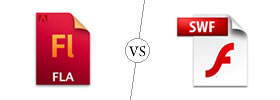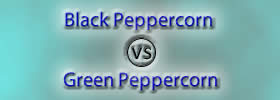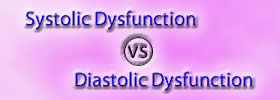Difference between Encyclopedia and Dictionary
Key difference: Encyclopedia and Dictionary differ in their usages. The encyclopedia contains detailed information about any subject relevant topics, while a dictionary possesses the meaning of varieties of words, arranged in a proper alphabetical format and in accordance to the pronunciation, forms and other factors.
Encyclopedias have existed for around 2,000 years, but from the 17th century onwards, both the modern encyclopedias and the dictionaries have evolved. Naturalis Historia (the oldest still in existence), was written in approximately 77 AD by Pliny the Elder.
 The word encyclopedia (also spelled as encyclopaedia) comes from the Koine Greek from transliterated enkyklios paideia, meaning “general education”, enkyklios means, “circular, recurrent, required regularly and general” and paideia means, “education, rearing of a child”, it was reduced to a single word due to an error by copyists of Latin manuscripts, the phrase together literally translates as a "complete instruction" or "complete knowledge".
The word encyclopedia (also spelled as encyclopaedia) comes from the Koine Greek from transliterated enkyklios paideia, meaning “general education”, enkyklios means, “circular, recurrent, required regularly and general” and paideia means, “education, rearing of a child”, it was reduced to a single word due to an error by copyists of Latin manuscripts, the phrase together literally translates as a "complete instruction" or "complete knowledge".
The encyclopedia is a collection of various topics and subjects, written especially, by the well-educated, well-informed and content expert authors, after their appropriate research in the relevant subjects. They are generally detailed informative booklets, available in different editions. They are of the form of huge research books, available in various types and editions of later periods. They include the thesis, works, research and broadly and generally explained examples. The researches are registered in these informative books. Some systematic methods of organizations are essential for the making of encyclopedia, as a usable work reference. Their work is a collective study and accumulation of the contents.
The purpose of encyclopedia is to gather information in a collective format. The huge books act as a source of reference in the education sectors and makes the correct information regarding the subject available to them. Software such as Encarta offers an encyclopedia with an integrated dictionary.
A dictionary (also called a wordstock, word reference, wordbook, lexicon, or vocabulary) is a collection of words in one or more specific languages. The oldest known dictionaries Akkadian Empire cuneiform tablets with bilingual Sumerian–Akkadian wordlists were discovered in Ebla (modern Syria) and were dated roughly around 2300 BCE.
The word dictionary was invented by an Englishman called John of Garland in 1220. He had written a book Dictionarius to help with Latin diction. The first purely English alphabetical dictionary was “A Table Alphabeticall”, written by English schoolteacher Robert Cawdrey in 1604.

Dictionaries are probably often listed alphabetically (or by radical and stroke for ideographic languages), with the usage, information, definitions, etymologies, phonetics, pronunciations, and other information. They provide the meaning of various words arranged alphabetically. Many words are even learned from dictionaries. Modern Dictionaries include new and defined words, which provide the general meaning in their forms and examples. They also help in the pronunciation of any word. Their purpose is to provide the understanding of real and general word along with their existence. They give a right and proper privileged value to the defined words and play a vital role in the field of literature.
There are various types and varieties of dictionaries available in the market. Today, a broad distinction is made between general and specialized dictionaries. The general purpose dictionaries are used by everyone for the sake of reference and to find meanings of words. Specialized dictionaries do not contain information about words that are used in the language and are onomasiological, which first identify the concept and then establish the terms used for their designation. Sometimes they are also distinguished on the prescriptive and descriptive basis.
Comparison between Encyclopedia and Dictionary:
|
|
Encyclopedia |
Dictionary |
|
Definition |
A book or a set of books giving information on many subjects or on many aspects of one subject and typically arranged alphabetically. |
A book that lists the words of a language in alphabetical order and gives their meaning, or that gives the equivalent words in a different language. |
|
Classification |
They are general broad informative books and are not classified as such compared to the dictionaries. |
They are classified as general purpose and specialized purpose. They are also classified in the perspective and descriptive formats. |
|
Includes |
It has people, events, and places along with their history. |
It has the words with their meaning. |
|
Interrelations |
They are made by referring the dictionaries. |
They are a subset of encyclopedias. |
|
Provides information |
It gives the history and definition of something. |
It gives you a definition and how a word is used in a sentence. |
|
Examples |
The English-language Encyclopedia Britannica is a well-known example. |
The dictionaries which are available on the online websites are the Oxford Advanced Learner's Dictionary, Free Online Dictionary, Merriam-Webster, Macmillan Dictionary, and many more. The ones available in general book format is the renowned Oxford Dictionaries. |
Image Courtesy: medicalstudents.ahlamontada.com, phoneky.com









Comments
Matthew hulse
Fri, 01/27/2017 - 00:40
A visual encyclopedia is one in which majority of the information is accompanied by photos and images. My first encyclopedia is one that is written in simpler language for younger children. It may also have a lot of images, as younger children respond well to images. However, the visual encyclopedia need not be written in simple language.
dbadmin
Mon, 01/30/2017 - 16:13
Knowledge derived is treasure acquired.
Nuela Edmund
Sun, 03/23/2014 - 08:23
Add new comment